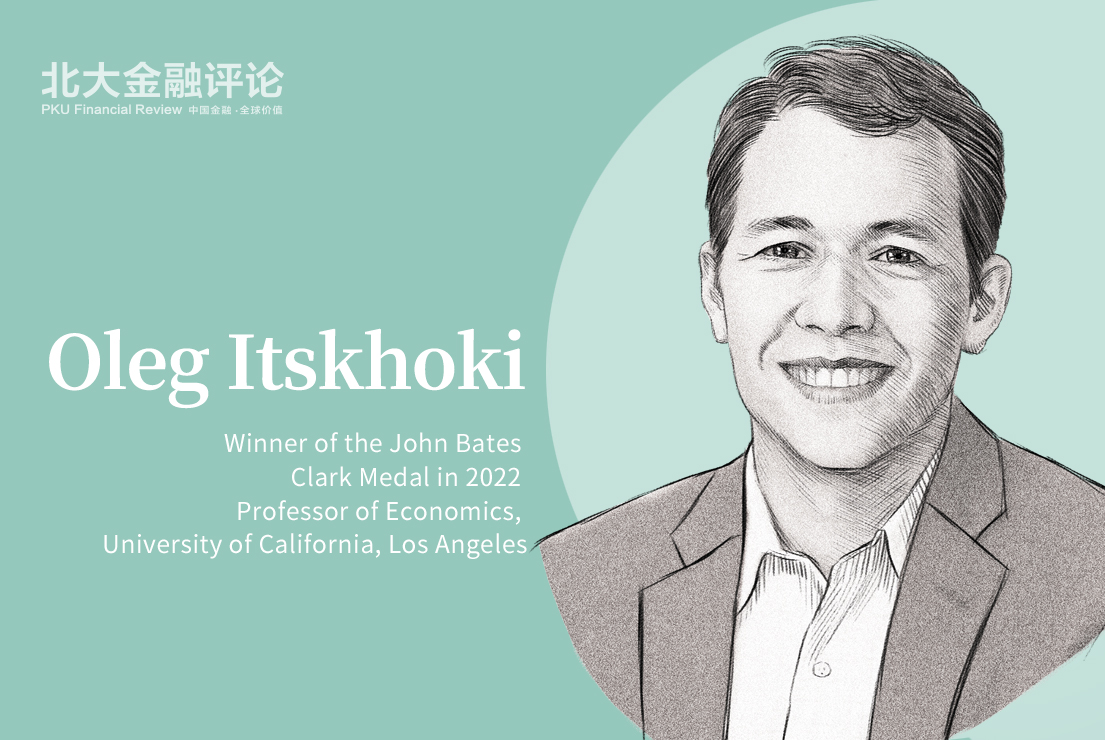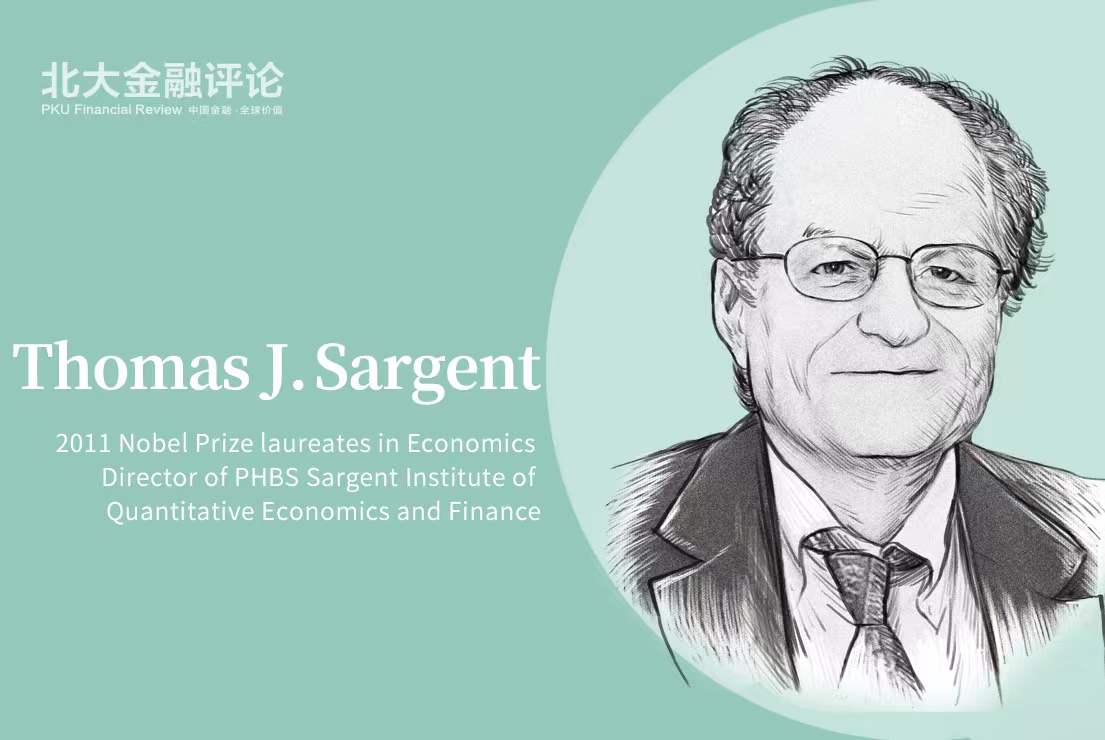Oleg Itskhoki is a Russian-origin, naturalized U.S. American economist specialized on macroeconomics and international economics. He won the John Bates Clark Medal in 2022, which is awarded to economists under forty, second only to the Nobel Memorial Prize in Economic Sciences.
In the interview with
PKU Financial Review, Oleg Itskhoki, winner of the John Bates Clark Medal in 2022, Professor of Economics at University of California, Los Angeles, states that, there is high likelihood that renminbi will keep gaining shares in international trade invoicing in line with China’s role in global trade, provided continued economic growth of the Chinese economy. It is harder to foresee the increased role of renminbi as international funding currency for multinational firms in the immediate future, yet renminbi will likely become increasingly more important in sovereign debt markets.
PKU Financial Review: We learned a lot from your paper "Granular Comparative Advantage". Taking French data as an example, you pointed out that export is mostly decided by large enterprises. When the country encourages export, it is actually important to reward and subsidize these large enterprises. So will future trade restrictions’ target turn from specific goods to specific companies? How do you predict the future patterns of trade disputes?
Oleg Itskhoki: Many existing trade policies, and in particular trade wars, target individual large foreign companies in line with the predictions of a granular model of trade – as such policies can induce the largest terms of trade shift in favor of the country for a given loss of consumer surplus from due to trade restrictions. Nonetheless, the reverse case for subsidizing largest exporters it a lot less clear. The issue is that it enhanced the monopoly power that will be exercised in particular in the domestic market and hurt domestic consumers. Open economy allows to shift part of the burden of monopoly power on foreign consumers, yet this might not be enough to guarantee domestic welfare gains. The question of benefits associated with policies that subsidize national champion firms remains open.
International trade is perhaps an area where the countries of the world received the greatest benefit from cooperation, which relies crucially on sustaining the norms of fair international competition and orderly conflict resolution using the mechanisms of the World Trade Organization. Trade wars are highly disruptive to these norms and increase the risk of deterioration of the global trade system. Thus, it is crucial for large countries, in particular the United States, Europe, China and Japan, to cooperate in this area and to come to a set of jointly supported and enforced norms and rules. Since WTO does not have enforcement mechanisms, it is the reputation of these large players that sustains such norms for all member-countries. Global economic prosperity in the coming decades will depend a lot on the ability of these large countries to come to an agreement regarding the rules and restore principles of cooperation in the area of international trade and investment. Failure to do so will result in a global economic slowdown which would affect every region in the world.
PKU Financial Review: We are very impressed by your paper "Sanctions and the Exchange Rate". It is an important paper that combines geopolitics with exchange rates. Restricting a country's imports tends to appreciate its exchange rate, while restricting a country's exports or freezing foreign assets tends to depreciate it. How do you think of Russia's ongoing resetting of its currency to peg the Rouble to oil and gold? Do you think that geopolitics will have an increasing influence on exchange rates in the future?
Oleg Itskhoki: Sanctions since Russia’s invasion of Ukraine combined with Bank of Russia policy of financial repression of foreign currency savings have resulted in a remarkable appreciation of the ruble. Currently, the goal of the central bank is to avoid any further appreciation of the ruble which puts excessive stress on fiscal balance – where majority of revenues come from foreign-currency commodity exports, while expenditure is fixed in rubles. Over the previous years, the ruble was stabilized using FX interventions with its long-run value correlated with the world oil prices, an arrangement typical for many ``commodity currencies’’. The future of the ruble depends a lot on the balance of exports and imports, which will likely be both restricted as long as the occupation of Ukraine continues, as well as on the strain on fiscal balance of the government, which needs to increasingly support domestic incomes and employment, and would put increasing pressure on the central bank to monetize future fiscal deficits without access to international financial market.
Sanctions must be a measure of last resort in response to gross violation of international norms, in particular annexation of foreign territories using military force. One can hope that a new international equilibrium would emerge where clear rules of cooperative international engagement are spelled out between liberal and authoritarian countries. Such a cooperative equilibrium is beneficial for all parties involved relative to an equilibrium of fragmentation and deglobalization, and thus I think it is not unlikely. In any case, exchange rates are unlikely to be the main variables affected by geopolitics, it is rather the overall levels of international trade and investment that depend on the choice between international cooperation and fragmentation.

The role of the US dollar has been enhanced in the last 30 years by trade and financial globalization, and in particular by the emergence of China as a global pilar of production and international trade, as Chinese growth strategy was based on deeper integration into the world trade and financial systems that rely on the use of the dollar. Going forward, it is possible that world trade would become more fragmented or even without fragmentation there would be multiple leading trade currencies. For example, Euro has already emerged as a dominant regional currency for international trade. International financial markets, however, are more likely to persistently rely on the dollar, at least in the foreseeable future, as it requires depth of the all-around financial development that is currently lacking for any alternative currency.
PKU Financial Review: In the current era, the order of economies, trade shares as well as geopolitics will change. How do you view the status of RMB?
Oleg Itskhoki: Renminbi will without doubt have an increasing role in world trade and finance, provided continued economic growth of the Chinese economy. There is high likelihood that renminbi will keep gaining shares in international trade invoicing in line with China’s role in global trade. An interesting development would be an adoption of a more floating exchange rate and departure from the managed peg for renminbi. This would likely trigger adjustment in the pricing strategies of firms involved in international trade, leading some of them to switch to pricing in renminbi. It is harder to foresee the increased role of renminbi as international funding currency for multinational firms in the immediate future, yet renminbi will likely become increasingly more important in sovereign debt markets for developing countries that receive financing from China.
PKU Financial Review: Many congratulations to you on winning the Clark Award. What do you think is the most important thing about economics for the world? Can economics make a seemingly bad world better?
Oleg Itskhoki: This is true without a doubt. Economic exchange and cooperation is the main engine that brings people of the world together even when they hold conflicting political and social beliefs. Nobody has explained this better than Milton Friedman in this brief lecture:
https://www.youtube.com/watch?v=67tHtpac5ws&t=47s. There is no stronger force in the world than economic cooperation that can so seamlessly unite vastly different populations across the world. This provides hope for global peace and prosperity in the 21
st century.
* This article has been initially published in PKU Financial Review.















